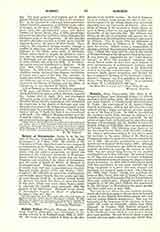

Robert Pullus (PULLEN, PULLAN, PULLY), cardinal, English philosopher and theologian, of the twelfth century, b. in England about 1080; d. 1147-50. He seems to have studied in Paris in the first decades of the twelfth century. In 1153 he began to teach at Oxford, being among the first of the celebrated teachers in the schools which were afterwards organized into the University of Oxford. After the death of Henry II he returned to Paris; thence he went to Rome, where he was appointed cardinal and Chancellor of the Apostolic See. His influence was always on the side of orthodoxy and against the encroachments of the rationalistic tendency represented by Abelard. This we know from the biography of St. Bernard written by William of St. Thierry, and from his letters. Robert wrote a compendium of theology, entitled “Sententiarum Theologicarum Libri Octo”, which, for a time, held its place in the schools of Western Europe as the official text book in theology. It was, however, supplanted by the “Libri Sententiarum” of Peter the Lombard, compared with whom Robert seems to have been more inclined to strict interpretation of ecclesiastical tradition than to yield to the growing demands of the dialectical method in theology and philosophy. The Lombard, however, finally gained recognition and decided the fate of scholastic theology in the thirteenth century. Robert’s “Summa” was first published by the Benedictine Dom Mathoud (Paris, 1655). It is reprinted in Migne (P.L., CLXXXVI, 639 sqq.).
WILLIAM TURNER

